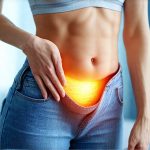Urinary tract infections (UTIs) are incredibly common, particularly among women due to anatomical factors. While many associate UTIs with painful urination and frequent urges to go, what often gets overlooked is the lingering fatigue that can persist long after the infection itself has been successfully treated. This post-UTI fatigue isn’t simply a matter of having lost sleep while feeling unwell; it’s a complex phenomenon that can significantly impact daily life, affecting energy levels, cognitive function, and overall well-being. Understanding why this happens, and what steps can be taken to manage it, is crucial for restoring vitality after battling a UTI.
Many women find themselves surprised by the duration of post-UTI fatigue. They expect to feel better once antibiotic treatment is complete, but instead experience weeks – or even months – of debilitating tiredness. This isn’t unusual and doesn’t necessarily indicate that something went wrong with the initial treatment. It speaks to the body’s complex response to infection and recovery, as well as potential downstream effects on various physiological systems. Recognizing this is a normal, albeit frustrating, part of the healing process can be incredibly empowering for patients seeking solutions.
Understanding Post-UTI Fatigue
Post-UTI fatigue isn’t fully understood, but several contributing factors are believed to play a role. First, the immune system activation required to fight off the infection takes a significant toll on energy reserves. Even after the bacteria are eliminated, it takes time for the immune system to ‘calm down’ and return to baseline function. This ongoing immune activity contributes directly to feelings of exhaustion. Secondly, UTIs can disrupt sleep patterns – not just due to discomfort but also because of nighttime urgency and associated anxiety. Poor sleep exacerbates fatigue and hinders recovery. Finally, chronic inflammation, even at a low level, is often present after infection and can contribute to persistent tiredness and cognitive difficulties.
The specific experience of post-UTI fatigue varies greatly from person to person. Some individuals report feeling overwhelmingly tired with limited ability to concentrate, while others describe more subtle but pervasive exhaustion that impacts motivation and productivity. It’s important to differentiate this type of fatigue from other potential causes like anemia, thyroid issues, or depression, which should be ruled out through appropriate medical evaluation. The intensity can also fluctuate; some days may feel manageable, while others are marked by debilitating tiredness.
It’s vital to remember that post-UTI fatigue is a real phenomenon and isn’t simply ‘being weak’ or needing to ‘push through it.’ Ignoring the fatigue or attempting to overexert oneself can actually prolong recovery. The body needs time and support to rebuild its energy reserves and restore normal function. Seeking appropriate medical guidance, focusing on rest, and adopting self-care strategies are essential steps in navigating this challenging period.
Addressing Nutritional Deficiencies & Gut Health
Often overlooked is the connection between gut health, nutritional status, and fatigue recovery. UTIs and antibiotic treatments can disrupt the delicate balance of bacteria in the gut microbiome. This disruption impacts nutrient absorption, immune function, and overall energy levels.
– Consider incorporating probiotic-rich foods like yogurt (with live cultures), kefir, sauerkraut, or kimchi into your diet.
– A high-quality probiotic supplement may also be beneficial, but it’s essential to discuss this with a healthcare professional.
Furthermore, UTIs can deplete certain nutrients. Iron deficiency is relatively common after infection and contributes significantly to fatigue. A blood test can determine if iron levels are low, and supplementation (under medical supervision) may be necessary. Other potentially depleted nutrients include Vitamin D, B vitamins, and magnesium. A balanced diet rich in whole foods – fruits, vegetables, lean proteins, and healthy fats – is the foundation of nutritional support.
Beyond supplementation, focusing on easily digestible foods can reduce digestive strain and allow your body to focus energy on recovery. Avoid processed foods, excessive sugar, and caffeine, as these can exacerbate inflammation and disrupt sleep. Hydration is also key; aim for at least eight glasses of water per day to support detoxification and overall health.
Prioritizing Rest & Gradual Activity Increase
The temptation to ‘bounce back’ quickly after a UTI is strong, but it’s crucial to prioritize rest and avoid overexertion during the recovery phase. This doesn’t mean complete bed rest – which can actually be detrimental – but rather a mindful approach to activity levels. Listen to your body and adjust your schedule accordingly.
– Allow for more sleep than usual, even if it means taking naps during the day.
– Avoid strenuous activities or demanding tasks until energy levels improve significantly.
A gradual increase in activity is key. Start with short walks or gentle stretching, gradually increasing duration and intensity as tolerated. Pacing yourself prevents flare-ups of fatigue and allows your body to adapt without being overwhelmed. Consider breaking down larger tasks into smaller, more manageable steps. Delegate responsibilities whenever possible.
Mindfulness practices like meditation or deep breathing exercises can also help manage stress and promote relaxation. Stress hormones deplete energy reserves and interfere with recovery. Creating a calming bedtime routine – avoiding screen time before bed, taking a warm bath, reading a book – can improve sleep quality and contribute to overall well-being. If urological inflammation is present, it may further complicate recovery.
Managing Cognitive Impairment & Brain Fog
Post-UTI fatigue frequently manifests as cognitive impairment often described as “brain fog.” This can include difficulty concentrating, memory problems, reduced mental clarity, and impaired decision-making skills. These symptoms can be incredibly frustrating and impact daily functioning. One potential contributor to brain fog is inflammation; chronic low-grade inflammation impacts neuronal function and communication.
Strategies for managing cognitive impairment focus on reducing mental strain and optimizing brain health.
1. Minimize distractions when focusing on tasks.
2. Create a structured routine and prioritize important activities.
3. Avoid multitasking, as this increases cognitive load.
Neuroprotective nutrients like omega-3 fatty acids (found in fatty fish, flaxseeds, and walnuts) can support brain function and reduce inflammation. Staying hydrated is also crucial for optimal cognitive performance. Engaging in mentally stimulating activities – puzzles, reading, learning a new skill – can help maintain cognitive function, but avoid pushing yourself to the point of exhaustion.
If brain fog significantly interferes with daily life, consider discussing it with your healthcare provider. They may recommend further evaluation or refer you to a specialist for support. Remember that this is often temporary and will improve as your body recovers from the infection and inflammation subsides. In some cases, dealing with urine leakage can also impact mental wellbeing during recovery. It’s important to address all aspects of health for optimal results. Furthermore, understanding your treatment options – such as robotic-assisted cystectomy if indicated – can empower you during this time and provide peace of mind. If prior radiation impacts the bladder, consider exploring options like partial cystectomy.





















